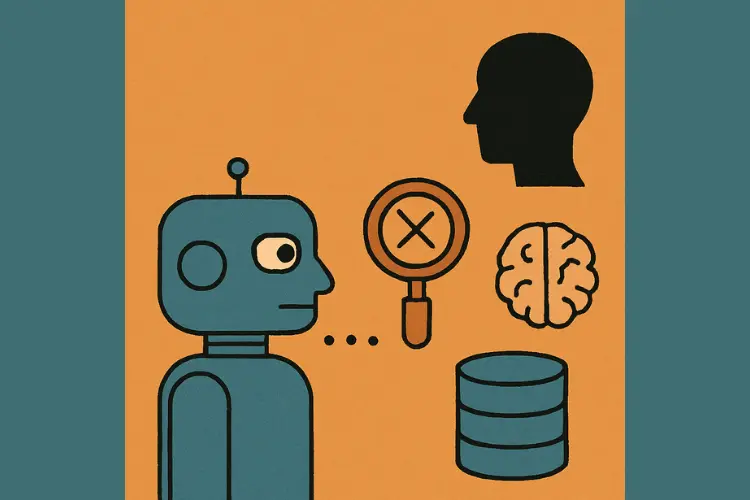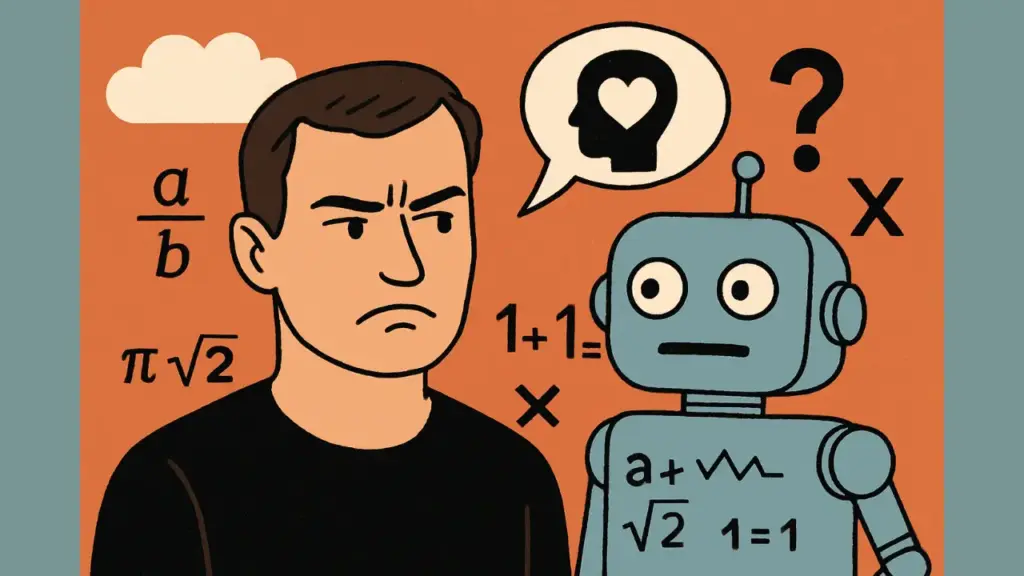Introduction
Artificial intelligence now powers tools millions use daily. From writing essays to generating code, AI like ChatGPT feels almost magical. But beneath its polished surface lie unexpected weaknesses. Andrej Karpathy, a former Tesla AI lead and deep learning expert, offers insights that challenge our faith in AI. He reveals gaps in reasoning, poor math skills, and AI’s strange gullibility.
So, is AI really intelligent or just good at pretending? Let’s explore Karpathy’s key points and unpack the truth behind modern AI’s limitations.
The Illusion of Intelligence
AI writes poems, explains physics, and speaks many languages. It seems smart. But Karpathy warns: this is often a well-disguised illusion.
AI systems like large language models don’t truly understand. They rely on patterns, not meaning. They predict the next word, not based on knowledge, but on probability.
This creates a convincing performance without real understanding. Karpathy calls it the illusion of intelligence. The AI sounds smart but lacks awareness. Like a skilled mimic, it repeats what it’s seen before—with confidence but no comprehension.
That’s how AI can sound persuasive while giving wrong answers.
What Is Jagged Intelligence?
Karpathy describes AI’s abilities as jagged intelligence: strong in certain areas, weak in others.
Examples include:
- Writing solid Python code but failing simple math.
- Drafting legal text while missing humor or irony.
- Answering trivia well but stumbling on logical puzzles.
This inconsistency makes AI unreliable for end-to-end problem solving.
For a fractional CTO using AI in product development, this matters. They must evaluate where AI performs well and where it doesn’t. Jagged intelligence means strategic deployment is essential. Blind trust leads to mistakes.
The ‘Rain Man’ Effect in AI
Karpathy compares AI to Rain Man, the movie character with savant-like abilities but limited understanding.
AI mirrors this. It can:
- Solve technical problems.
- Reference complex theories.
- Memorize large text segments.
But it can also:
- Misunderstand basic instructions.
- Miss subtle cues.
- Fail at everyday reasoning.
This unpredictable mix of brilliance and fragility means supervision is vital. Professionals, especially fractional CTOs, must treat AI as a skilled intern—not an expert.
Why AI Is So Gullible
Karpathy highlights how easily AI is tricked. It believes almost anything.
AI doesn’t ask, “Does this make sense?” It just continues the input logically.
Scenarios include:
- Responding seriously to false assumptions.
- Expanding fake quotes.
- Disclosing private content if prompted cleverly.
This stems from its core function: predicting likely responses, not judging accuracy.
In sensitive sectors like law or healthcare, this gullibility poses risks. A fractional CTO integrating AI must install guardrails and require human oversight to catch false outputs.
Strengths of AI Innovation
Despite flaws, AI has real strengths. Karpathy recognizes its power when tasks are narrow and data is clear.
AI performs well in:
- Text summarization.
- Code generation.
- Document translation.
Fractional CTOs use AI to:
- Draft emails.
- Create support scripts.
- Assist developers with repetitive code.
When used in the right setting, AI boosts efficiency. But human judgment should always guide it.
The Weaknesses We Can’t Ignore
Karpathy digs into the core flaws of AI, including:
- No Common Sense
- AI doesn’t understand real-world cause and effect.
- It may suggest harmful or silly actions.
- Math Errors
- Simple calculations often go wrong.
- Even retries don’t guarantee correctness.
- Context Loss
- AI forgets earlier parts of conversations.
- Long-term memory is weak or absent.
These issues limit AI’s reliability. Businesses must treat AI as an assistant, not an authority.
Fractional CTOs must validate AI results and build monitoring tools that alert teams to hallucinations or logic flaws.
What This Means for the Future of AI
Karpathy reminds us: today’s AI isn’t truly intelligent. It’s a high-speed, high-volume assistant with shallow understanding.
If used responsibly, it can accelerate work. But it can’t replace reasoning, ethics, or experience.
Future directions include:
- Training AI to spot falsehoods.
- Improving memory.
- Grounding AI in factual databases.
Fractional CTOs must lead the way by adopting AI where it helps and restraining it where it misleads. Innovation must include accountability.

Conclusion
Andrej Karpathy exposes the myths around AI. It may sound brilliant, but it lacks the heart of true intelligence: reasoning, judgment, and adaptability.
For product teams, startup founders, and fractional CTO, the key is strategic adoption. Use AI to amplify, not replace, human insight.
As platforms like StartupHakk continue exploring the cutting edge, we must stay grounded in reality—balancing excitement with careful evaluation.




